#Vasily Matenov
Explore tagged Tumblr posts
Text
Asians of Russia: "Without Independence, Nations Perish"
The Asians of Russia team at an anti-war congress in Berlin, most of them wearing sweatshirts identifying them as “non-Russians.” Photo: asiansofrussia (Instagram) Pyl spoke with Asians of Russia cofounder Vasily Matenov about how the campaign has been helping people despite hounding from the Russian Interior Ministry, and why the residents of Russia’s ethnic republics are the most vulnerable to…

View On WordPress
#Asians of Russia (grassroots campaign)#Buryats#Dmitry Trapeznikov#Elista#ethnic minorities in Russia#ethnic republics#Kalmykia#military mobilization#Pyl (online media outlet)#Russian anti-war movement#secessionism in Russia#Tuvans#Vasily Matenov
0 notes
Text
This is almost certainly propaganda.
Vasily Matenov, the co-founder of Asians of Russia, talks about taking money from the Zimin Foundation. The Zimin Foundation, among other things, operates the "Memorial Society," the entire point of which is to demonize the Soviet Union. Boris Zimin also funded the anti-Russia/pro-Ukraine rag Meduza, as well as Nato-shill Alexei Navalny.
On the Asians of Russia instagram page under related profiles is "Free Buryatia," which is based out of Alexandria, Virginia, a suburb of Washington D.C.
Like the rest of Northern Virginia and Central Maryland, modern Alexandria has been influenced by its proximity to the U.S. capital. It is largely populated by professionals working in the federal civil service, in the U.S. military, or for one of the many private companies which contract to provide services to the federal government. One of Alexandria's largest employers is the U.S. Department of Defense. Another is the Institute for Defense Analyses.
Without being able to read Russian and not having access to the text of the law, but I imagine Russia withdrawing from this has more to do with the fact that Russia is basically at war with Europe, and that the convention apparently puts a great deal of emphasis on NGOs, calling them "essential to the full realization of the principles of the Convention," which Russia has decided to crack down on in recent years, rather than Putin preparing to launch a mad scheme to exterminate Russia's minorities.
Very important. Please read.
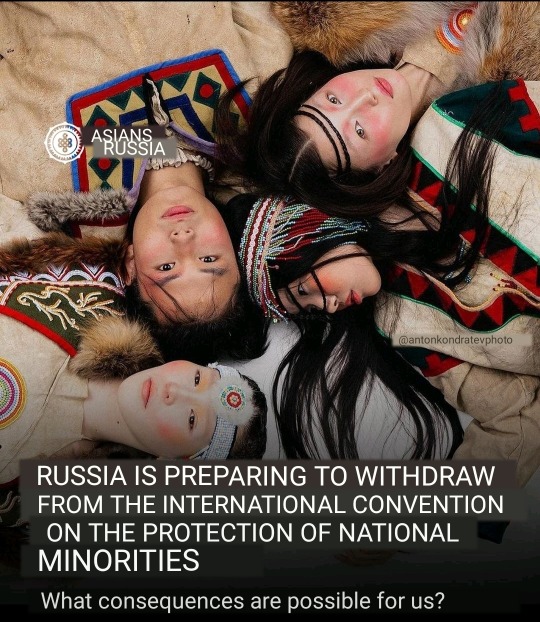

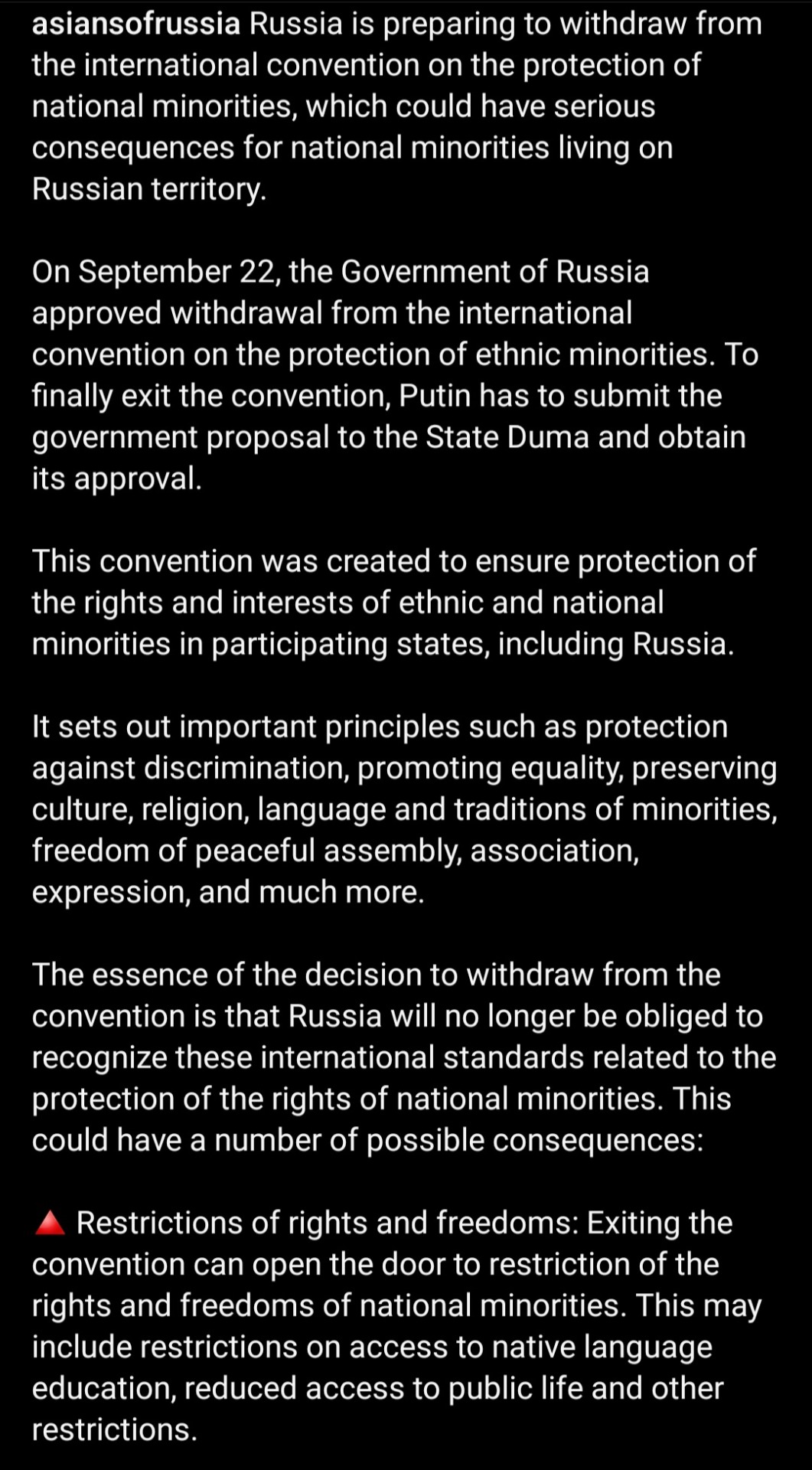
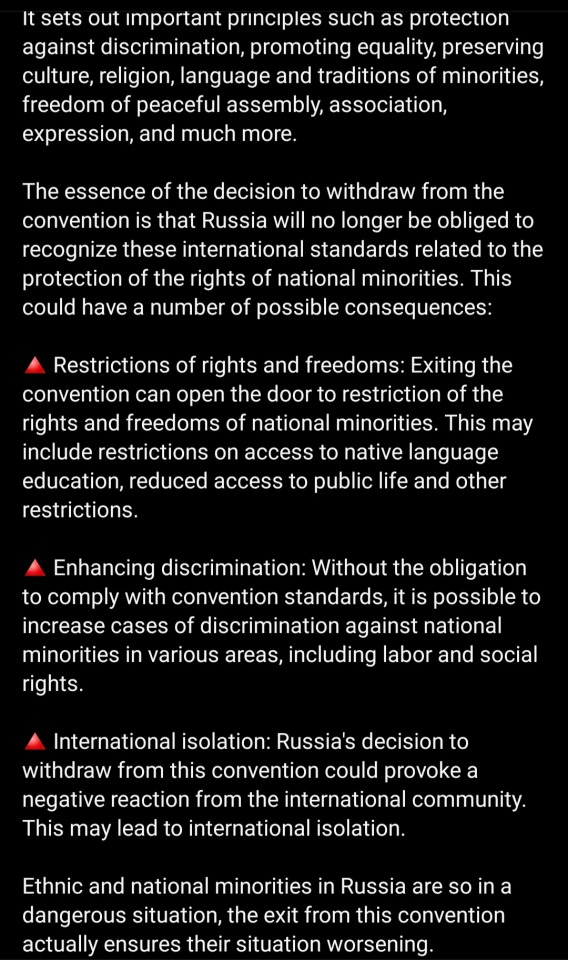
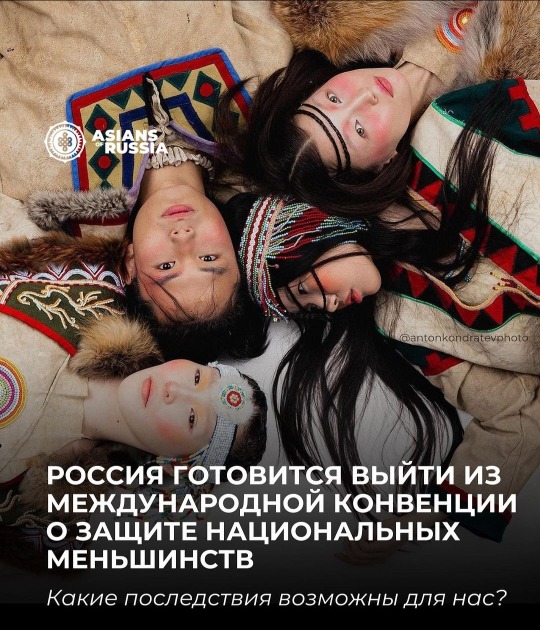

550 notes
·
View notes
Text
Russia’s Sending Its Ethnic Minorities to the Meat Grinder
Chaotic mobilization sparks renewed fears that the pain will not be shared evenly across Russia.
By Amy Mackinnon, a national security and intelligence reporter at Foreign Policy.
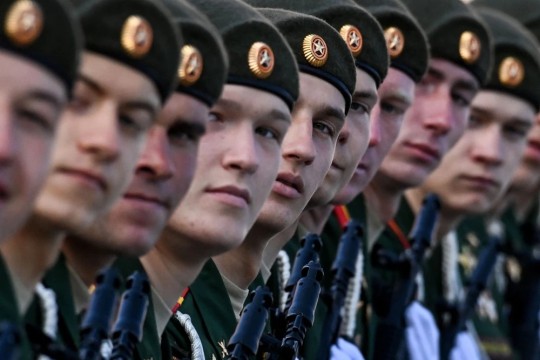
Russian servicemen gather at Red Square in Moscow on May 7, 2021, before a rehearsal for the Victory Day military parade.
SEPTEMBER 23, 2022, 4:26 PM
Russian President Vladimir Putin’s announcement of a partial military mobilization on Wednesday sent shockwaves through Buryatia, a mountainous republic in eastern Siberia some 3,500 miles from Moscow.
As military recruiters began knocking on doors with summons in hand and almost a dozen schools in the region’s capital have been transformed into conscription centers, activists say some men in remote areas have resorted to hiding in the forest while others flee the country, with lengthy lines reported at the country’s land borders.
“Today, Buryatia experienced one of the most terrible nights in its history,” Alexandra Garmazhapova, president of the Free Buryatia Foundation, wrote on Facebook on Thursday.
Although reports have emerged from across the country of men receiving military summons—including some of those arrested for protesting in Moscow—the intensity of the recruitment drive in Buryatia has further fueled suspicions that ethnic minorities are being sent to fight and die in Ukraine at disproportionate rates. The region is home to nearly 1 million people, some 30 percent of whom are ethnically Buryat and share close cultural and historic ties with Mongolia.
Over the past two days, reports have emerged of men being recruited from towns and villages across Yakutia, a large but sparsely populated region in northeastern Siberia that is home to a large population of ethnic Yakuts. According to local media, 4,500 men are expected to be recruited from the region. In Dagestan, a majority Muslim republic in southern Russia, local men can be seen arguing with an unidentified official encouraging them to enlist. “You are fighting for your children’s future,” said the woman.
“We don’t even have a present,” replies a man from the crowd. “What kind of future are you talking about?”
Owing to its history of empire and territorial expansion, Russia is home to more than 160 different ethnic groups, according to the country’s 2010 census. Ethnic and Indigenous groups made up 20 percent of the country’s population as of 2002.
Russian officials have been deeply secretive about their battlefield losses, which U.S. officials estimate could be as high as 20,000 deaths and which Ukrainian officials peg at more than twice that. Analysis by activist groups and the media have raised suspicions that ethnic minorities are dying at disproportionately high rates. The BBC’s Russian service examined reports of more than 6,000 confirmed battlefield losses and found that by the beginning of September, troops from Dagestan, Buryatia, and Krasnodar in southern Russia had lost the most soldiers—over 200 deaths from each region. By comparison, only 15 people from the Moscow region, which accounts for almost one-tenth of Russia’s population, had been killed in battle.
Russian regions are significantly poorer than western Russia. In Buryatia, where the average monthly salary is one-third of that in Moscow and St. Petersburg, the military offered local men the possibility of a stable salary. “The army for them before the war was a good way to earn money and take care of their mortgages,” said Natalia Arno, president of the Free Russia Foundation, who is originally from the region.
Units from Russia’s eastern military district—which encompasses Buryatia and large parts of Siberia, the most neglected of Russia’s military regions—led the assault on Kyiv in the early days of the war in some of the most intense fighting thus far. Sending troops from poorer and more remote regions also enables the Kremlin to avoid ruffling the feathers of wealthy city-dwellers.
“These people are less defended,” said Vasily Matenov, founder of Asians of Russia, which was launched on social media four years ago to gather Russians of Asian heritage. “If they were to start rounding up Muscovites, then everyone would hear about it.”
In a video address on Friday, former Mongolian President Tsakhiagiin Elbegdorj called on Putin to stop the war. “I know since the start of this bloody war, ethnic minorities who live in Russia suffered the most,” he said. “The Buryat Mongols, Tuva Mongols, and Kalmyk Mongols have suffered a lot. They have been used as nothing more than cannon fodder.”
Russia’s high rate of troop losses looks set to continue, with new recruits under the mobilization reportedly being offered just two weeks of training amid lingering questions about whether Moscow is able to equip hundreds of thousands of new soldiers.
In the wake of Russia’s invasion of Ukraine, new civil society organizations representing Russia’s ethnic minorities from Yakutia, Buryatia, and Kalmykia were established to protest the war and educate soldiers about their legal rights. The groups are “an absolutely new phenomenon,” Arno said.
Harassment and discrimination against ethnic minorities in Russia is commonplace, and many saw through the Kremlin’s claims that it was engaged in a campaign of “denazification” in Ukraine, Arno said. ”Many of them are saying Russia needs denazification.”
Since the mobilization was announced on Wednesday, the most active of these groups, the Free Buryatia Foundation, has been sharing information on social media about which countries Russians can travel to visa-free, assisting fighting-age men to flee the country as well as gathering data on conscription.
“They are taking any men right now. And it will happen everywhere in Russia; they’re just testing it in Buryatia,” said Victoria Maladaeva, vice president of the Free Buryatia Foundation.
On Wednesday, Russian Defense Minister Sergei Shoigu said 300,000 men would be called up in a partial mobilization of reservists—the first in the country since World War II.
The independent Russian newspaper Novaya Gazeta Europe, which was forced into exile after the war began, reported on Thursday that a classified paragraph from the presidential decree authorizing the mobilization could allow for up to a million people to be called for service, citing a source close to the Russian presidential administration. Putin’s spokesperson denied the claims.
Protests erupted across Russia in the wake of the conscription announcement despite the country’s draconian anti-protest laws. As of Friday, more than 1,300 people had been arrested, according to the independent monitoring site OVD-info. AvtoZak Live, another human rights monitoring group, reported that nine military recruitment centers had been set on fire since the mobilization was announced.
According to Russian officials and the county’s law on mobilization, only men with previous military service or relevant skill sets are to be called up, and students, people with more than four children, and those with certain health conditions will be exempt. But in the chaotic first two days of the mobilization, multiple reports have emerged of students and pensioners receiving summons. A father of five children from Buryatia with no previous military service was also called up, according to a video shared on social media by his wife, Yanina Nimaeva, a local journalist.
“I understand we need to send 4,000 people for the partial mobilization from our republic, but should there not be a limit to this?” she said in a video addressed to the region’s governor.
#indigenous#indigenous russian#indigenous russia#culture#russia#important#colonization#fypシ#fypage#landback#no to genocide#stop the genocide#Genocide#Ukraine war#russia ukraine war#ethnic minorities#russian imperialism#colonialism#Decolonize#fyp#Racism
14 notes
·
View notes